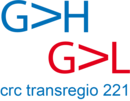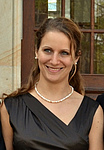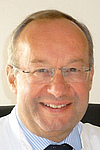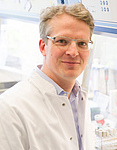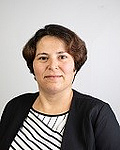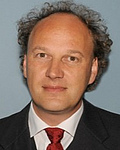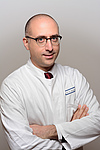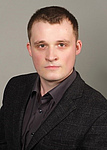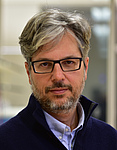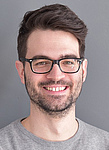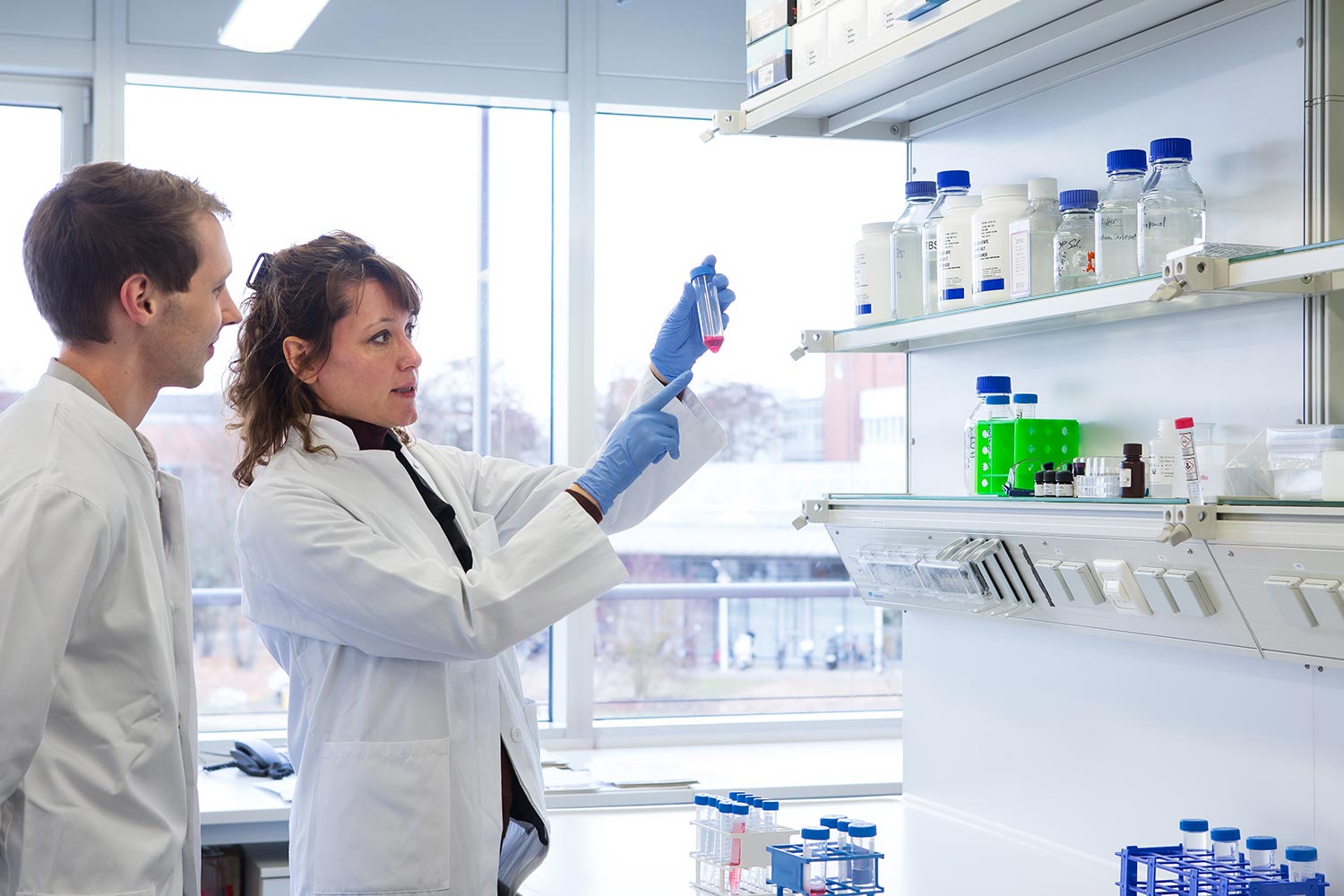
CRC Transregio 221|Projects
Project A01
Summary Project A01
Induction of the graft-versus-leukemia (GvL) effect in the absence of graft-versus-host disease (GvHD) by CD4+ T-cells directed against DM-sensitive antigens will be tested in murine models of allogeneic bone marrow transplantation both in a minor and a major mismatch setting. Using H2-O (murine HLA-DO) knock-out and transgenic mice as well as wild type mice as recipient strains will allow us to determine the role of the tissue-specific expression of H2-O for induction of GvL effect and GvHD. In addition, we aim to unravel regulation of HLA-DO expression in human cells. Finally, we will test effects of HLA-DO regulators on GvL effect and GvHD.
Selected publications
Wohlfahrt, T. et al. (2019) ‘SPI1/PU.1 controls fibroblast polarization and tissue fibrosis’, Nature, 566(7744), pp. 344–349. Available at: https://doi.org/10.1038/s41586-019-0896-x. Data available: GSE122334
Kretschmann, S. et al. (2023) ‘Successful Generation of CD19 Chimeric Antigen Receptor T Cells from Patients with Advanced Systemic Lupus Erythematosus’, Transplantation and Cellular Therapy, 29(1), pp. 27–33. Available at: https://doi.org/10.1016/j.jtct.2022.10.004.
Contact to Principal Investigator
- Dr. rer. nat. Hannah Reimann
Universitätsklinikum Erlangen
Medizinische Klinik 5
Hartmannstraße 14
91052 Erlangen
T: 09131 85-36287
hannah.reimann(at)uk-erlangen.de
- PD Dr. Dr. med. Anita Kremer, Ph.D.
Universitätsklinikum Erlangen
Medizinische Klinik 5
Ulmenweg 18
91054 Erlangen
T: 09131 85-43183
anita.kremer(at)uk-erlangen.de
Project A02
Summary Project A02
HLA-DPB1 mismatch antigens occur in allogeneic HSCT from unrelated donors and represent powerful leukemia rejections antigens, which can be efficiently targeted by T cells that have been genetically reprogrammed with allo-HLA-DPB1 specific T-cell receptors (TCR-DP). In this project we will develop an approach that allows for efficient and safe TCR-DP gene therapy in allogeneic HSCT. Special emphasis will be placed on the prevention of treatment-induced HLA-DP-specific alloreactivity to non-hematopoietic tissues (e.g. by „ON-Switch“ TCR or TCR-RNA transfer) and on the development of a novel humanized mouse model that enables the pre-clinical testing of this approach.
Selected publications
Dittmar, D.J. et al. (2024) ‘Donor regulatory T cells rapidly adapt to recipient tissues to control murine acute graft-versus-host disease’, Nature Communications, 15(1), p. 3224. Available at: https://doi.org/10.1038/s41467-024-47575-z. Data available: GSE223800
Reimann, H. et al. (2023) ‘Identification and characterization of T-cell receptors with therapeutic potential showing conserved specificity against all SARS-CoV 2 strains’, Immunobiology, 228(5), p. 152720. Available at: https://doi.org/10.1016/j.imbio.2023.152720.
Contact to Principal Investigators
- Prof. Dr. med. Simone Thomas
LIT - Leibniz Institute for Immunotherapy (former RCI)
University Hospital Regensburg
Department of Internal Medicine III
Franz-Josef-Strauß-Allee 11
93053 Regensburg
T: +49 941 944-5501
simone.thomas(at)ukr.de
- Prof. Dr. med. Wolfgang Herr
University Hospital Regensburg
Department of Internal Medicine III
Franz-Josef-Strauß-Allee 11
93053 Regensburg
T: +49 941 944-5142
wolfgang.herr(at)ukr.de
Project A03
Summary Project A03
In this project, we apply the chimeric antigen receptor (CAR) technology to augment the GvL effect of HSCT. CARs are synthetic designer receptors that redirect the specificity of T cells to recognize malignant cells. We will pursue two novel CAR targets, i.e. FLT3 in acute myeloid leukemia and SLAMF7 in multiple myeloma, and apply cutting-edge strategies to increase their efficacy (e.g. through metabolic arming) and safety (e.g. with enhanced suicide genes). To avoid GvHD, we will generate CMV-specific (endogenous TCR) CAR-T cells and employ novel in vivo models to evaluate their ability to concomitantly battle against leukemia/myeloma and CMV infection.
Selected publications
Shaikh, H. et al. (2022) ‘Fibroblastic reticular cells mitigate acute GvHD via MHCII-dependent maintenance of regulatory T cells’, JCI Insight, 7(22), p. e154250. Available at: https://doi.org/10.1172/jci.insight.154250. Data Available: GSE168114
Mestermann, K. et al. (2019) ‘The tyrosine kinase inhibitor dasatinib acts as a pharmacologic on/off switch for CAR T cells’, Science Translational Medicine, 11(499), p. eaau5907. Available at: https://doi.org/10.1126/scitranslmed.aau5907.
Contact to Principal Investigators
- Prof. Dr. med. Michael Hudecek
University Hospital Würzburg
Department of Medicine III
Oberdürrbacher Straße 6
97080 Würzburg
T: +49 931 201-71091
hudecek_m(at)ukw.de
- Prof. Dr. med. Hermann Einsele
University Hospital Würzburg
Department of Medicine III
Oberdürrbacher Straße 6
97080 Würzburg
T: +49 931 201-40001
einsele_h(at)ukw.de
Project A04
Summary Project A04
We aim to develop novel bi-molecular hemibody constructs that address antigen combinations instead of single target molecules for high precision immunotherapy in the context of allogeneic HSCT. In a first step, we opt to improve the biochemical properties of the constructs focusing on stability, solubility and producibility. In a second step, we will establish humanized NSG mouse models to investigate pharmacokinetics and the specific requisites of dual antigen targeting, mimicking the clinical situation of leukemia patients undergoing allogeneic HSCT.
Selected publications
Bäuerlein, C.A. et al. (2021) ‘A T-Cell Surface Marker Panel Predicts Murine Acute Graft-Versus-Host Disease’, Frontiers in Immunology, 11, p. 593321. Available at: https://doi.org/10.3389/fimmu.2020.593321.
Shaikh, H. et al. (2022) ‘Fibroblastic reticular cells mitigate acute GvHD via MHCII-dependent maintenance of regulatory T cells’, JCI Insight, 7(22), p. e154250. Available at: https://doi.org/10.1172/jci.insight.154250. Data available: GSE168114
Contact to Principal Investigators
- Dr. med. Thomas Bumm
University Hospital Würzburg
Department of Medicine II
Oberdürrbacher Straße 6
97080 Würzburg
T: +49 931 201-44977
bumm_t(at)ukw.de
- Dr. rer. nat. Zeinab Mokhtari
University Hospital Würzburg
Department of Medicine II
IZKF Research Laboratory for Experimental Hematopoietic Cell Transplantation
Zinklesweg 10
97080 Würzburg
T: +49 931 201-44051
Mokhtari_z(at)ukw.de
- Prof. Dr. med. Gernot Suhler
University Hospital Würzburg
Department of Medicine II
Versbacher Straße 5
97078 Würzburg
T: +49 931 201-44423
Stuhler_g(at)ukw.de
Project A06
Summary Project A06
We hypothesize that oxidative stress confers immunological “hits” that predispose for leukemia relapse. The reconstituting donor immune system, which is fundamental for the GvL effect, is negatively impacted by oxidative stress. Our project addresses the importance of redox-balance after allo-HSCT. We will assess oxidative stress and its impact on immune reconstitution and function in allo-HSCT patients. We will test interventions for improving the T-cells’ anti-oxidative capacities together with other key functional properties. Our goal is to identify novel redox biomarkers predicting relapse risk that will allow us the rational design of targeted redox modulation for relapse prevention.
Selected publications
Baur, R. et al. (2023) ‘Accumulation of T-cell-suppressive PD-L1 high extracellular vesicles is associated with GvHD and might impact GvL efficacy’, Journal for ImmunoTherapy of Cancer, 11(3), p. e006362. Available at: https://doi.org/10.1136/jitc-2022-006362.
Böttcher, M. et al. (2022) ‘Bone marrow stroma cells promote induction of a chemoresistant and prognostic unfavorable S100A8/A9high AML cell subset’, Blood Advances, 6(21), pp. 5685–5697. Available at: https://doi.org/10.1182/bloodadvances.2021005938.
Contact to Principal Investigators
- Prof. Dr. med. Dimitrios Mougiakakos
University Hospital Erlangen
Department of Medicine 5
Ulmenweg 18
91054 Erlangen
T: +49 9131 85-43172
dimitrios.mougiakakos(at)uk-erlangen.de
- Prof. Dr. med. Andreas Mackensen
University Hospital Erlangen
Department of Medicine 5
Ulmenweg 18
91054 Erlangen
T: +49 9131 85-35954
andreas.mackensen(at)uk-erlangen.de
Project A07
Summary Project A07
Relapse after alloHSCT is frequently associated with poor survival in patients with advanced B-cell malignancies. In order to investigate curative options for those patients, we are conducting in collaboration with the US National Cancer Institute (NCI) a first in human trial employing donor-derived CD19-CAR TSCMcells. In this project, we plan to perform a comprehensive and detailed immunomonitoring comparing TSCM-enriched CAR T cell products to conventional donor-derived CAR T cells from a prior NCI study conducted on a similar subset of patients. In particular, we will investigate potential benefits of the TSCM cell platform in terms of CAR T cell expansion, long-term persistence, CAR T cell functionality, safety profile and alloreactivity. Finally, by using retroviral insertion and TCR clonotype analyses, we will assess the differentiation trajectory of CD19-CAR and untransduced TSCMcells to determine how CAR signaling affect their self-renewal and multipotency.
Selected publications
Harrer, D.C. et al. (2019) ‘CSPG4-Specific CAR T Cells for High-Risk Childhood B Cell Precursor Leukemia’, International Journal of Molecular Sciences, 20(11), p. 2764. Available at: https://doi.org/10.3390/ijms20112764.
Harrer, D.C. et al. (2022) ‘Apheresis for chimeric antigen receptor T‐cell production in adult lymphoma patients’, Transfusion, 62(8), pp. 1602–1611. Available at: https://doi.org/10.1111/trf.17030.
Contact to Principal Investigators
- Dr. med. Dennis Harrer
- Universitätsklinikum Regensburg
Klinik und Poliklinik für Innere Medizin III
Franz-Josef-Strauß-Allee 11
93053 Regensburg
T: +49 941 944-15557
dennis.harrer(at)ukr.de
- Prof. Dr. med. Luca Gattinoni
LIT - Leibniz Institute for Immunotherapy (former RCI)
c/o Universitätsklinikum Regensburg
Franz-Josef-Strauß-Allee 11
93053 Regensburg
T: +49 941 944-38131
luca.gattinoni(at)ukr.de
Project A08
Summary Project A08
The impact of selective and timed activation or inhibition of the type I interferon inducing cGAS / STING pathway during the course of allo-HSCT and its influence on the GvL effect as well as donor T cell activation and differentiation remains unknown. Using selective receptor ligands and inhibitors, and a combination of advanced in vivo models of leukemia and lymphoma, allogeneic transplantation models, and next-generation sequencing approaches, we aim to unravel the consequences of timed cGAS/STING activation / inhibition during allo-HSCT.
Selected publications
Delacher, M. et al. (2019) ‘Rbpj expression in regulatory T cells is critical for restraining TH2 responses’, Nature Communications, 10(1), p. 1621. Available at: https://doi.org/10.1038/s41467-019-09276-w. Data available: GSE119169
Delacher, M. et al. (2020) ‘Precursors for Nonlymphoid-Tissue Treg Cells Reside in Secondary Lymphoid Organs and Are Programmed by the Transcription Factor BATF’, Immunity, 52(2), pp. 295-312.e11. Available at: https://doi.org/10.1016/j.immuni.2019.12.002. Data available: GSE130884
Contact to Principal Investigators
- Prof. Dr. med. Hendrik Poeck
University Hospital Regensburg
Department of Internal Medicine III
Franz-Josef-Strauß-Allee 11
93053 Regensburg
T: +49 941 944-5542
hendrik.poeck(at)ukr.de
- Dr. rer. nat. Christian Schmidl
LIT - Leibniz Institute for Immunotherapy (former RCI)
c/o Universitätsklinikum Regensburg
Franz-Josef-Strauß-Allee 11
93053 Regensburg
T: +49 941 944-18176
christian.schmidl(at)ukr.de
